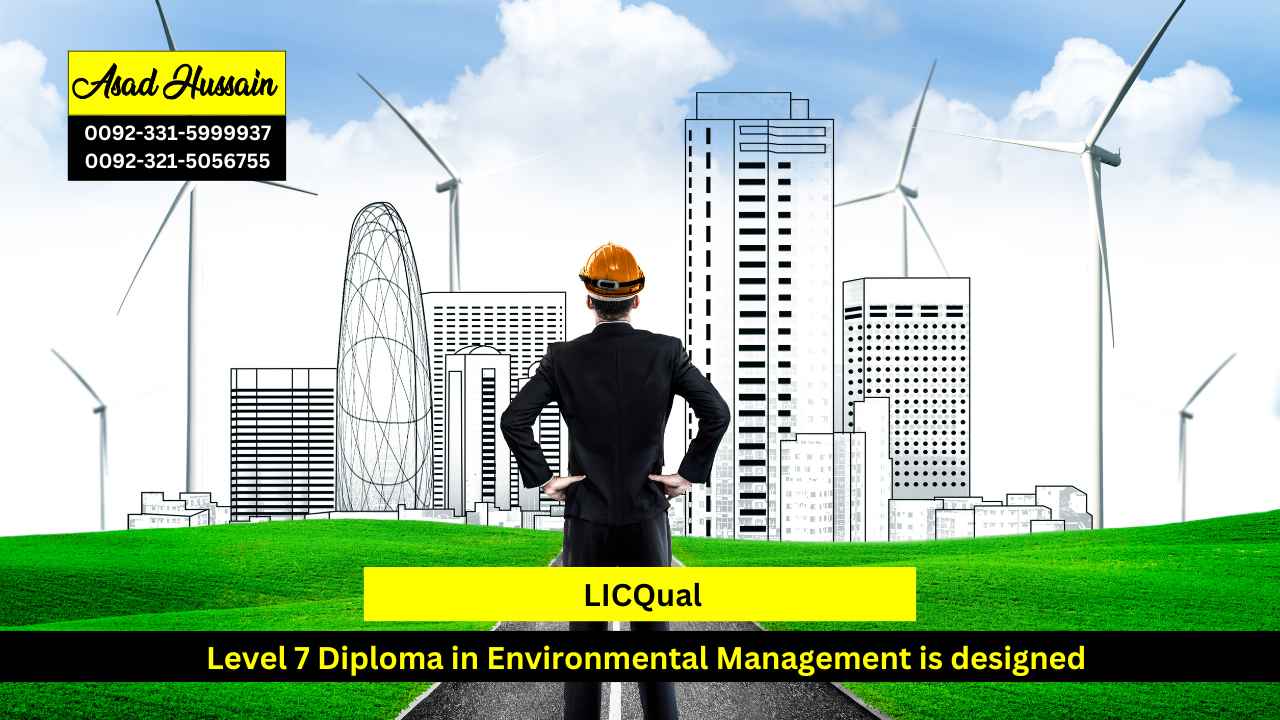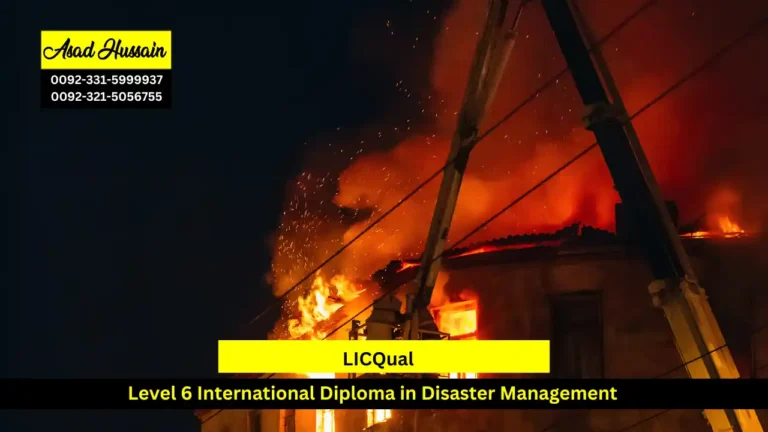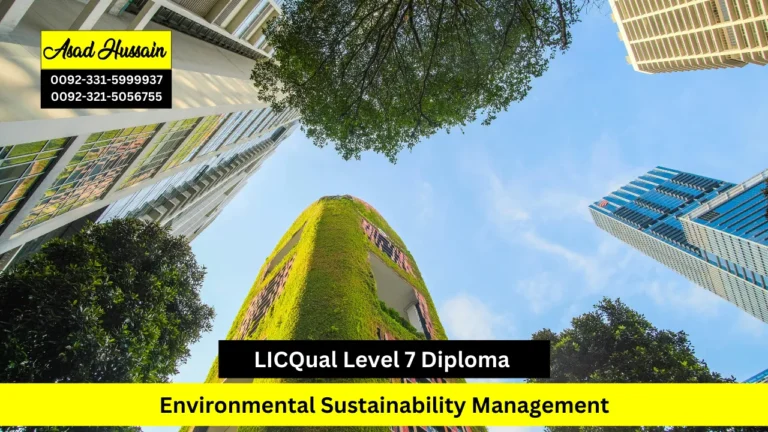In an era where environmental concerns take center stage, the Level 7 Diploma in Environmental Management emerges as a beacon for those passionate about making a positive impact on our planet. This advanced diploma not only equips individuals with profound knowledge but also empowers them with strategic skills to navigate complex environmental challenges effectively. Whether you’re a seasoned environmental professional or a newcomer aspiring to lead sustainability initiatives, this diploma offers a comprehensive pathway to deepen your expertise and drive meaningful change in environmental management.
The Level 7 Diploma in Environmental Management is designed to cater to the diverse needs of professionals across various sectors, including environmental consultancy, policy-making, corporate sustainability, and conservation. It encompasses a rigorous curriculum that delves into critical areas such as environmental policy, sustainable development strategies, regulatory compliance, and innovative technologies shaping the field. Participants gain insights into global environmental issues, learn to analyze complex environmental data, and master the art of devising sustainable solutions that align with organizational goals and global mandates.
By undertaking the Level 7 Diploma in Environmental Management, participants not only enhance their technical expertise but also cultivate leadership qualities essential for driving sustainable change. They gain proficiency in navigating regulatory landscapes, fostering stakeholder engagement, and implementing innovative solutions that address pressing environmental challenges. Moreover, this diploma fosters a global perspective, preparing individuals to contribute meaningfully to international efforts aimed at achieving environmental sustainability and resilience.
In conclusion, the Level 7 Diploma in Environmental Management stands as a cornerstone for professionals dedicated to shaping a greener, more sustainable future. It serves as a catalyst for innovation, collaboration, and informed decision-making in environmental stewardship. Whether you aim to influence policy, lead corporate sustainability initiatives, or advance conservation efforts, this diploma equips you with the knowledge, skills, and credentials needed to make a lasting impact. Embrace the opportunity to join a community of environmental leaders and embark on a transformative journey towards environmental excellence and stewardship.
Program Highlights
Mandatory Units
- Unit 1. Sustainability and Environmental Systems
- Unit 2. Environment Management – Decision Making
- Unit 3. Global Environmental Issues
- Unit 4. Environmental Auditing
- Unit 5. Environmental Policy
- Unit 6. Environmental Policy and Governance
- Unit 7. Environmental Law
- Unit 8. Managing Changes in Environment
- Unit 9. Environmental Science Challenges
- Unit 10. Environmental Perception and Public Awareness
- Unit 11. Environmental Impact Assessment
Educational Background:
- A bachelor’s degree or equivalent qualification in environmental science, environmental management, ecology, sustainability, geography, or a related field is often required. The degree should be from a recognized institution.
Work Experience:
- Some programs may require relevant work experience in environmental management, sustainability, or a closely related field. This typically ranges from 2 to 5 years, depending on the program and institution.
English Language Proficiency:
- For international students, proof of English language proficiency may be required. This is usually demonstrated through standardized tests such as IELTS or TOEFL, with specific score requirements set by the institution.
References:
- Applicants may need to provide letters of recommendation or references attesting to their academic and/or professional capabilities in environmental management or related fields.
Statement of Purpose:
- Some institutions may request a statement of purpose or personal statement outlining the applicant’s motivation for pursuing the Level 7 Diploma in Environmental Management, career goals, and relevant experience.
Interview:
- In some cases, applicants may be required to attend an interview as part of the admission process. The interview helps assess the applicant’s suitability for the program and their alignment with the program’s objectives.
Additional Requirements:
- Depending on the institution, there may be additional requirements such as a writing sample, portfolio (if applicable), or completion of prerequisite courses in environmental science or related disciplines.
1. Sustainability and Environmental Systems:
- Understand the principles of sustainability and their application in environmental management.
- Analyze environmental systems and their interdependencies within natural and human-made contexts.
- Evaluate strategies for promoting sustainability and resilience in environmental systems.
2. Environment Management – Decision Making:
- Apply decision-making frameworks and methodologies to environmental management scenarios.
- Assess the environmental, social, and economic implications of decisions affecting natural resources.
- Implement strategies to optimize resource allocation and mitigate environmental risks.
3. Global Environmental Issues:
- Identify major global environmental issues such as climate change, biodiversity loss, and pollution.
- Analyze the interconnectedness of global environmental challenges and their impacts on ecosystems and societies.
- Propose international cooperation and policy solutions to address global environmental crises.
4. Environmental Auditing:
- Conduct environmental audits to assess compliance with environmental regulations and standards.
- Develop audit protocols and methodologies to evaluate environmental performance.
- Recommend corrective actions and improvements based on audit findings.
5. Environmental Policy:
- Analyze the development and evolution of environmental policies at national and international levels.
- Evaluate the effectiveness of environmental policies in achieving sustainability goals and reducing environmental impacts.
- Propose policy recommendations to address emerging environmental issues and promote sustainable development.
6. Environmental Policy and Governance:
- Understand the roles and responsibilities of stakeholders in environmental policy-making and governance.
- Evaluate the effectiveness of governance structures in addressing environmental challenges.
- Advocate for inclusive and transparent environmental governance processes.
7. Environmental Law:
- Interpret environmental legislation and regulatory frameworks governing natural resource management and pollution control.
- Analyze case studies of legal disputes and environmental justice issues.
- Apply legal principles to resolve environmental conflicts and promote compliance with environmental laws.
8. Managing Changes in Environment:
- Identify drivers of environmental change, including climate variability, land use change, and technological advancements.
- Develop adaptive strategies to manage environmental change and enhance ecosystem resilience.
- Monitor and assess the impacts of environmental changes on biodiversity and ecosystem services.
9. Environmental Science Challenges:
- Explore emerging environmental science challenges such as microplastics, deforestation, and habitat fragmentation.
- Apply scientific methodologies and data analysis techniques to investigate environmental issues.
- Collaborate with interdisciplinary teams to develop innovative solutions to environmental science challenges.
10. Environmental Perception and Public Awareness:
- Analyze public perceptions of environmental issues and their influence on policy-making and behavior change.
- Design communication strategies to enhance public awareness and engagement in environmental conservation.
- Evaluate the effectiveness of outreach campaigns and educational programs in promoting environmental stewardship.
11. Environmental Impact Assessment:
- Conduct environmental impact assessments (EIAs) to evaluate the potential effects of development projects on ecosystems and communities.
- Apply mitigation measures and best practices to minimize adverse environmental impacts.
- Communicate EIA findings and recommendations to stakeholders and regulatory authorities effectively.
The Level 7 Diploma in Environmental Management is designed for professionals and aspiring leaders who are passionate about making a significant impact in environmental sustainability and management. It caters to individuals working or seeking careers in environmental consultancy, policy-making, conservation, corporate sustainability, and related fields. This course is ideal for environmental managers, consultants, government officials, researchers, and educators who wish to deepen their understanding of global environmental issues, enhance their technical skills in environmental policy and governance, and develop strategies to address complex environmental challenges effectively. Whether you’re looking to advance in your current role or transition into a leadership position within the environmental sector, this diploma equips you with the knowledge, tools, and credentials necessary to drive positive environmental change and contribute to sustainable development initiatives globally.







